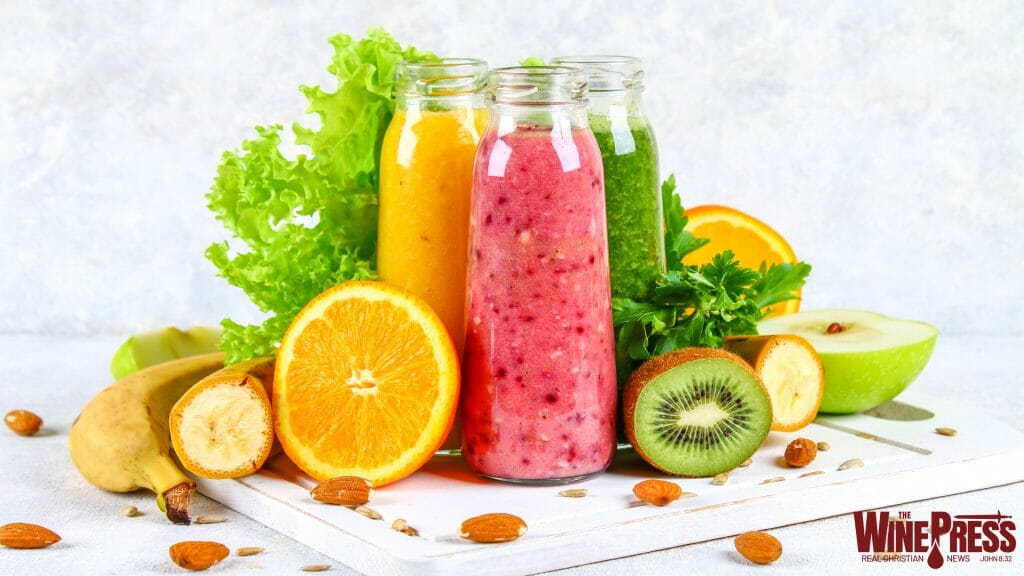The following report is by Dr. Josh Axe, DC, DNM, CN:
When you hear “ultra-processed foods,” you probably pictures things like soda, cereal, cookies and frozen dinners — and you’d be right.
According to a study published in the medical journal BMJ Open, these are considered ultra-processed foods, or “formulations of several ingredients which, besides salt, sugar, oils and fats, include food substances not used in culinary preparations.”
A large body of research suggests that there are many dangerous effects of eating large amounts of ultra-processed foods. There’s no doubt about it, the amount that many Americans eat is alarming.
A 2021 JAMA study, for example, found that ultra-processed foods now account for two-thirds (67 percent) of calories on average in the diets of American children and teens. The BMJ study mentioned above uncovered that 58 percent of the average American’s daily energy intake comes from unhealthy foods like cakes, white breads and diet sodas.
What types of health problems may this lead to? As explained more below, consumption of such unhealthy ingredients is linked to problems including:
- obesity
- diabetes
- heart disease
- inflammatory bowel disease
- depression
- even cancer

What Are Ultra-Processed Foods?
Processed foods are those that have been changed in any way from their natural state, whether do to washing, canning, freezing or adding ingredients to them. Ultra–processed foods take things a step further: They are made mostly from substances extracted from foods, such as fats, starches, added sugars and hydrogenated fats, according to Harvard Health Publishing.
Processed foods are definitely a tricky subject. Considering that many seemingly healthy foods come in packages today, it can be hard to tell the difference between “whole foods” and those that are processed.
For example, is oatmeal an ultra-processed food? Are things like bagged trail mix or bottled fruit smoothies actually healthy choices?
Breads and oatmeal are in fact “processed” even if they are healthy and homemade. You don’t just nibble on these grains — you process them into a loaf or rolled oats.
Nut butters are processed, too, when they’re churned into a creamy spread.
In fact, any food that hasn’t been directly pulled out of the ground and eaten is technically processed, like frozen fruits or canned veggies.
The Processed Foods Spectrum:
Not all processed foods are created equally. Chowing down on Twinkies is certainly not the same as adding frozen spinach to your smoothies, even though they’re technically both processed.
What is the difference between processed and ultra-processed food? Check out the spectrum below:
- Avoid: Ultra-processed foods — This group includes things like frozen dinners (yes, that includes pizza), all sodas (even diet!), store-bought cakes and cookies (goodbye, Little Debbie), boxed cake mixes, etc. These are made with added fats, starches, added sugars, hydrogenated fat and other artificial ingredients.
- Not often: Processed foods — This includes ingredients like jarred pasta sauce, sausages, store-bought salad dressings and whole-grain bread. These aren’t terrible in moderation or when you’re short on time but, when possible, it’s best to make your own versions to limit added ingredients. When you do purchase these, look for those that have several (two to four) ingredients.
- Better: Minimally processed foods — This includes things like extra virgin olive oil, meats (naturally raised), plain yogurt, nut butters (where the only ingredients are the nut and salt), frozen vegetables and fruit that have been processed at their peak to lock in freshness and nutrition. Ideally these should be just one to two ingredients.
- Best: Unprocessed foods — Fresh fruit, wild-caught fish and veggies fall into this category. They’re delicious just as nature made them.
Effects On Health
What do ultra-processed foods do to your body? Research shows that diets high in processed foods are associated with:
- Weight gain and obesity, including among children and teens
- Heart disease and vascular diseases
- Diabetes
- Depression
- Cancer
- More
A 2019 study published in the journal Cell Metabolism that compared the effects of an ultra-processed diet to those of an unprocessed diet found that people consumed about 500 more calories per day on the ultra-processed diet. The ultra-processed diet usually resulted in higher intake of carbohydrates and fat but not protein.
Participants gained on average two pounds during the ultra-processed diet phase of the study, which lasted just 14 days.
Another study found that over a five-year period, people who consumed more ultra-processed foods had higher risks of cardiovascular disease, coronary heart disease and cerebrovascular disease. This remained true even after the researchers adjusted for the nutritional quality of the diet (considering factors such as the amount saturated fat, sodium, sugar and dietary fiber in the diets).
A 2018 study linked high consumption of these types of foods to a greater risk of developing certain types of cancer. Researchers found that a 10 percent increase in ultra-processed foods in someone’s diet was correlated to about an 11 percent increase in developing breast cancer.
Added sugar found in many packaged foods is also a big health concern. Today it’s estimated that about 90 percent of Americans’ “added sugar intake” comes from ultra-processed foods. In fact, sugar makes up about 21 percent of the calories found in ultra-processed foods.

High consumption of sugar, as well as different types of artificial sweeteners, is associated with a variety of health conditions, from obesity to type 2 diabetes to migraines.
Studies have shown that people who consume more than 21 percent of their daily calories from added sugar double their risk of death from heart disease compared to those who consume less than 10 percent of their calories from added sugars. It’s not an exaggeration to say that added sugars are killing us.
Ultra-Processed Foods List
What is considered ultra-processed food? These are the types of food products that are loaded with preservatives, additives and unrecognizable ingredients.
Many are also artificially colored and flavored, often deep-fried, and contain next to no nutritional value.
Many things offered at “fast food” restaurants fall into this category. Fast food is fast and cheap for a reason … the large majority of the time, it’s processed and pre-prepared.
According to the Centers for Disease Control and Prevention’s National Center for Health Statistics, about 37 percent of American adults eat fast food on a given day. Data also showed eating fast food decreased with age, surprisingly increased with income, and was more popular among men and non-Hispanic black adults.
Some examples of ultra-processed foods to avoid include:
- Chips, many crackers and salty snacks, and French fries
- Frozen pizza and other frozen meals
- Many cheeses and processed meats, like hot dogs, bologna, etc.
- Cakes, cookies, brownies, donuts and frostings
- Candy
- Fast food
- Soda, many juices and energy drinks

How To Eat Less Ultra-Processed Foods (Healthy Swaps)
1. Make Gradual Changes
While it’s tempting to make drastic dietary changes, you and your family have a better chance of sticking to healthy habits if you decide on one change at a time.
For example, if you usually serve soda or juice with meals, try replacing these with water instead. After a few days, remove another major source of sugar.
Not only will this help ease you into changes mentally, but it’ll also help reduce any physical symptoms you might experience.
2. Shop with a Grocery List
It’s a lot easier to make healthy choices and avoid ultra-processed foods when you have a list of the items you’re looking to add into your diet instead.
Make a list of the meals you’re preparing for the week and all the ingredients required.
If you’re thinking of heading to the store without eating, forget about it. Shopping on an empty stomach will make it harder to resist those foods you should avoid.
3. Shop the Store’s Perimeter
You’ve probably heard it before, but there’s a reason it’s recommended that you shop the edge of the store and skip most of the middle aisles.
Fresh produce, meats and dairy are nearly always around the store perimeter, while ultra-processed foods get stacked on the shelves in the middle of the store. By limiting the aisles you shop, you’ll resist temptation to purchase bad-for-you foods.
Similarly, hit the healthier part of the grocery store first. One of the things I love about certain Whole Foods is that you enter the store in the vegetable and fruit area, so you start loading up on the best foods in the store well before you may start getting tempted by the naughty processed or ultra-processed foods.
4. Read the Ingredients List
If there’s something on the ingredients list of a packaged food that you couldn’t buy to use in your own kitchen – or whose name you can’t even pronounce – it’s probably highly processed.
Don’t forget that ingredients are listed in the order of how prevalent in a food they are. Beware of what’s listed as one of the first five ingredients, or better yet, avoid foods that have more than five ingredients in them.
5. Look Out for Added Sugars
Food manufacturers have gotten cleverer about how sugars are listed by using different terms for the substance in the ingredients list. One rule of thumb is that ingredients ending with “ose” are sugars: Think sucrose, fructose and dextrose.
Another is to use fancy or “natural” sounding sugars, such as:
- cane sugar
- beet sugar
- cane juice
- fruit juice
6. Try These Healthier Alternatives
- Instead of chips and fries— Make your own. You don’t have to stick to potatoes either. I’m a huge fan of spicy kale chips, zucchini chips and even sweet baked apple chips. Keep these on hand when you need a TV time snack or to nibble on while getting dinner ready.
- Instead of frozen pizzas — Try one of these easy homemade doughs, like this coconut crust pizza or cauliflower pizza crust with your favorite toppings, such as veggies. These are super tasty, come together quickly and you can customize them to your family’s tastes.
- In place of sugary drinks — Replace sugary sodas and store-bought juices with homemade drinks that taste great and are good for you, too. This anti-inflammatory green juice will boost your body’s natural defenses, while my orange carrot ginger juice is a crowd-pleaser among kids.
- In place of cakes, cookies, muffins — Sweet treats don’t need to be eliminated entirely, but when there are alternatives that taste this good, there’s no need for ultra-processed versions. This chocolate frosting is fantastic atop homemade baked goods, maybe even on this gluten-free chocolate cake.
- Alternatives to fast food — You can steer clear of fast food by meal prepping and choosing healthier restaurant options. (Here are the restaurants I recommend.) Fast food’s ubiquity can be difficult to escape, but it can be done. Eliminating those foods and replacing them with healthier alternatives is one of the best things you can do for your family’s health.

Conclusion
- What are ultra-processed foods? These are foods that are made with added ingredients, such as sugar, salt, fat, and artificial colors or preservatives. Examples include fast food, chips, frozen meals, soda, processed meats and cheeses, and desserts like cake and cookies.
- It’s been found that about 58 percent of the average American’s daily energy intake comes from unhealthy foods like cakes, white breads and diet sodas, while they make up up to two-thirds of teens’ and children’s calories.
- People who eat an ultra-processed diet tend to consume more calories and have a higher risk of experiencing weight gain, obesity, heart disease, diabetes and more.
- It’s a much better alternative to eat homemade meals using whole foods, such as those that are only made with one to two ingredients.
AUTHOR COMMENTARY
[1] When thou sittest to eat with a ruler, consider diligently what is before thee: [2] And put a knife to thy throat, if thou be a man given to appetite. [3] Be not desirous of his dainties: for they are deceitful meat. [19] Hear thou, my son, and be wise, and guide thine heart in the way. [20] Be not among winebibbers; among riotous eaters of flesh: [21] For the drunkard and the glutton shall come to poverty: and drowsiness shall clothe a man with rags.Proverbs 23:1-3
Dr. Sten Eckberg, a former Olympic decathlete, has a great video explaining a list of other things you must absolutely avoid like the plague.
And yet, you and I do not hear a single word about this on either side of the media. NEWS FLASH: they want you sick and dying so you can come crawling to the “loving arms” of big pharma, to make a perpetual patient out of you. So when the media goes berserk over cases and deaths – for a virus that has never been isolated – they never tell you just how grossly unhealthy they are: no exercise, highly-processed diet and fast foods, overeating, horrible sleep, mega-nutrient deficiencies, no sunlight, bad hygiene, and juiced to the gills with drugs: street or pharmaceutical (which are the same, but one is passed on in a dark alley and another one is administered by an overweight “doctor” in a white jacket).
The WinePress has plenty of reports about the junk food pandemic here in America, and will only get worse.
Study Shows That Small Amounts Of Junk Food Can Stunt Growth In Children And Weaken Their Bones
Gen Z And Millennials Are Fueling The Snack And Junk Food Boom
New Study Finds That Half A Billion People In The World Are Now Diabetic
Unhealthy Eating Kills Just As Much As Covid
Fast Food Sales Shoot To The Moon. America Loses More Jobs Than Created In July
Krispy Kreme Is Offering MORE Donuts As A Vaccine Incentive
Study Finds New Chemicals And Pollutants In Our Bodies
New Study Finds That Artificial Sweeteners Damage Organs. Sweetener Institute Disagrees
And on the contrary, The WP has many reports laying out ways to lose weight and have significantly healthier lifestyles.
Improved Mental Health Is Contingent Upon Healthier Diets And Lifestyles
New Study Reveals Intermittent Fasting May Help Protect Older Adults From Injury And Hospitalization
Sprouting: The Mega-Healthy, Simple, And Super Cheap Foods That Everyone Can Make
New Study Reveals That Fermented Foods Cure Diabetes, Cancer, Arthritis, Stress, Etc.
Foods And Drinks Rich In Flavonoids Can Help Improve Your Blood Pressure
New Study Finds That Omega-3 Fatty Acids In Fish Can Eradicate Cancer Cells
An Avocado A Day May Help Women Reduce Belly Fat
[7] Who goeth a warfare any time at his own charges? who planteth a vineyard, and eateth not of the fruit thereof? or who feedeth a flock, and eateth not of the milk of the flock? [8] Say I these things as a man? or saith not the law the same also? [9] For it is written in the law of Moses, Thou shalt not muzzle the mouth of the ox that treadeth out the corn. Doth God take care for oxen? [10] Or saith he it altogether for our sakes? For our sakes, no doubt, this is written: that he that ploweth should plow in hope; and that he that thresheth in hope should be partaker of his hope. (1 Corinthians 9:7-10).
The WinePress needs your support! If God has laid it on your heart to want to contribute, please prayerfully consider donating to this ministry. If you cannot gift a monetary donation, then please donate your fervent prayers to keep this ministry going! Thank you and may God bless you.








I will make a confession: when I want something sweet, it’s only once in a while and it’s just a small taste and then I’m good. I’m not gorging on pies, cakes, cookies, donuts and so forth. Also, I’ll nom nom on a hot dog every so often so that I need to quit! I figure because I work a physically active job so far so good and go to the gym I figure it works but maybe not so.
Processed foods are everywhere so it’s a nutritional minefield. I do, I’ll make another confession: I go to the gym and I swim, sometimes other cardio like basketball or running/jogging, lots of weights and pull-ups or push-ups too! I’m not Arnold Swartzenegger but I’ve gotten stronger. But I still need to be careful.
Hi Jacob.
I have a question that I’m hoping you could answer. As christian’s should we go to see a doctor for medical attention, even when the medical and pharmaceutical industries are wicked and after people’s money? Also what can we do in an emergency?